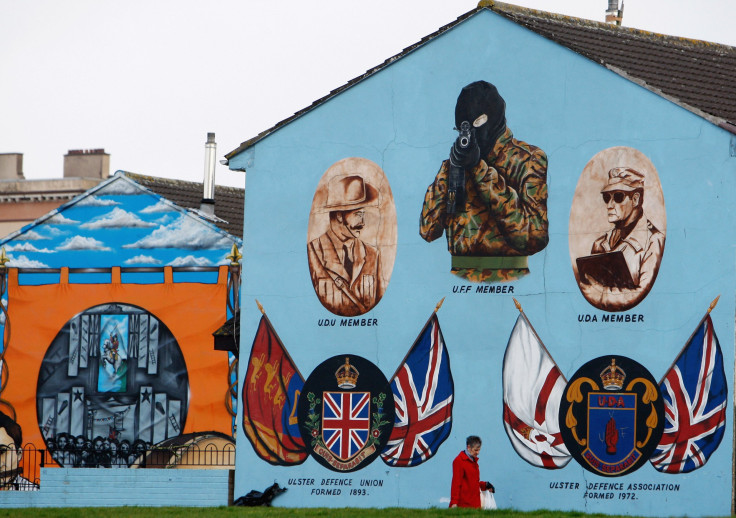Poorest Part Of UK, Northern Ireland, Suffering Many Wounds As Britain Votes In Election

As the United Kingdom prepares to elect a prime minister, the poorest part of the country, Northern Ireland, suffers from high rates of poverty, unemployment and suicide.
The Northern Ireland department of health on Wednesday published a new suicide-prevention strategy that seeks to cut the suicide rate there by 10% over five years.
In 2017, Northern Ireland recorded 305 suicides. Between 2015 and 2017, Northern Ireland registered 16.5 suicides per 100,000 population. This figure compared with eight suicides per 100,000 in the Republic of Ireland and nine in England.
In fact, Northern Ireland has the highest suicide rate in the U.K., with five deaths every week.
As in most other countries, men successfully kill themselves three times as often as women in Northern Ireland.
“Suicide is preventable and not inevitable, yet almost every day in Northern Ireland a person takes their own life,” said the department of health’s permanent secretary, Richard Pengelly. “While suicide rates here have remained relatively stable over the last decade, the level is, without a doubt, unacceptably high. How we address this is a challenge for all in government and society.”
At present, the government spends £8.7 million ($11.5 million) on suicide prevention annually --with an additional £1.35 million ($1.8 million) to be provided this year.
“One of the aims is to deliver suicide-prevention services and support, with a particular focus on deprived areas where self-harm rates are highest and suicide rates are over 3.5 times higher than those in the least deprived areas,” Pengelly said.
Dr. Michael McBride, chief medical officer for Northern Ireland, said the toll suicide takes “is not just measured in lives lost and anguish for families and communities. There is also an estimated wider societal cost of £1.55 million [$2.05 million] for each life lost. Right across government, we must continue to prioritize investment in prevention.”
McBride added, “There is no bigger public health challenge."
“There is nothing more important than us making progress in reducing deaths by suicide and reducing rates of self-harm in Northern Ireland, which does not compare favorably with other parts of the U.K.," he said.
But, Robbie Butler, a member of the Northern Ireland assembly, said he was disappointed by the health department’s modest goals.
“Given the sheer scale of the problem I would have thought a more ambitious target would have been much more appropriate,” he said. “It is already deeply regrettable that Northern Ireland will come nowhere close to the World Health Organization target of member states reducing suicide rates by 10% by 2020. I hope that with this new strategy we can now use the next few years to exceed all targets.”
A 2018 study found more people in Northern Ireland died by suicide since the Good Friday agreement in 1998 than were killed during the Troubles -- a 30-year period of political turmoil and violence in which at least 3500 people were killed.
Closely linked to suicide is poverty.
In Northern Ireland, more than a quarter of adults are either jobless or not even looking for work -- marking the highest rate of such economic inactivity in the U.K.
In Northern Ireland, 13.6% of children live in long-term workless households – versus a U.K. average of 8.2%. In the most deprived parts of Northern Ireland, the suicide rate is almost twice the average for the whole province. Men ages 30-34 living in North Belfast, a very deprived area, are at the highest risk of suicide in the entire U.K.
“Even in Belfast, the spike in suicide rates is crazy,” professional soccer player Chris Kerr said. “It’s really gone through the roof. I’m from West Belfast and it’s [bad] in the North in general but in West Belfast where I live, it’s just been crazy. It’s every other day you hear of one or there’s just an influx or spate of them in a short period of time.
"You hear it going from 12-year-olds right up to I’ve even heard of men in their 70s [dying by suicide] recently. So it’s a hard one, you don’t know if it’s the increase in using smartphones or the likes of Brexit or people with financial problems, or betting, because gambling is a big issue for a lot of people too.”
© Copyright IBTimes 2024. All rights reserved.



















